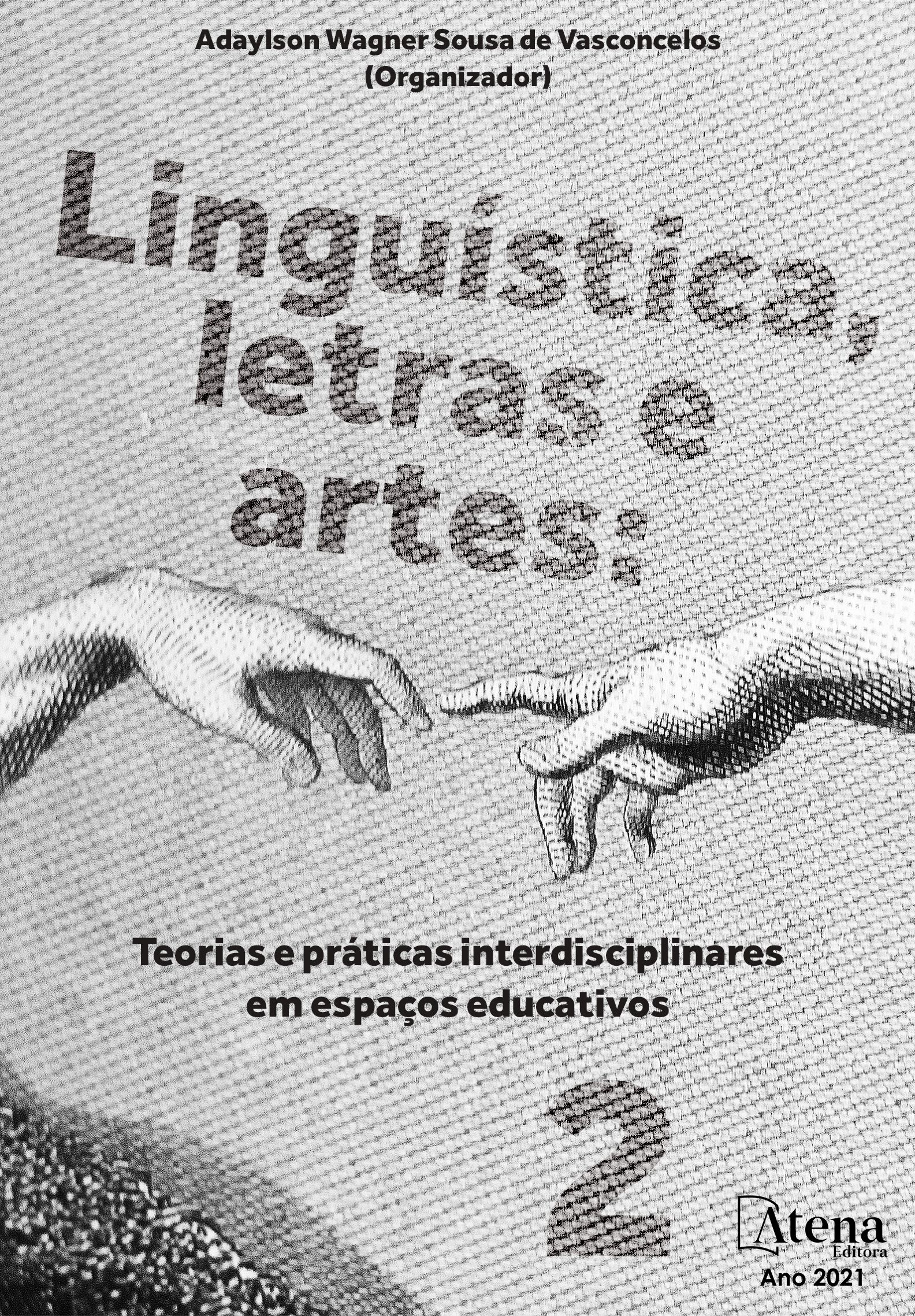
VERSOS POÉTICOS: UM SABER SOBRE A LÍNGUA
A língua não é estática no trabalho de produção de sentidos, tampouco uma estrutura fixa, em cuja forma se apreende um sentido explícito ou único para as palavras. Ao contrário, a língua pressupõe um sistema relativamente autônomo, cuja estrutura constitui-se de frestas, falhas, onde os sentidos se materializam na/pela injunção entre língua, sujeito e história. Consideramos a língua em seu movimento próprio de deslizamentos, de rompimentos, cuja plasticidade constitui o foco de nossa inquietação, na sua relação com a história. Neste trabalho, visamos compreender como diferentes línguas, em especial o francês e o inglês, significam a língua e o sujeito nacionais brasileiros, ao se articularem na sintaxe de composições musicais. Para tanto, nos inscrevemos aos pressupostos teóricos da Análise do Discurso, para, à luz desta teoria, compreender fundamentalmente os sentidos que se dão numa relação com a história e que, a partir da história/língua/sujeito, constroem a memória discursiva, possibilitando a significação. Pela Análise de Discurso compreendemos que os sentidos se dão a partir das condições de produção e que pensar o modo como as diferentes línguas significam na/pela sintaxe da língua portuguesa é deslocar sentidos já-dados para as palavras dessas línguas, pois em outras condições de produção, produzem-se diferentes efeitos de sentido. Propomos, neste trabalho, um deslocamento para o que convencionalmente vem sendo chamado na Linguística de empréstimo ou estrangeirismo, propondo uma reflexão discursiva que inclui a história, significando a língua e o sujeito nessa relação, na/pela memória. Ao compreender o funcionamento de diferentes línguas na sintaxe do português, nos curvamos ao real da língua, pela abertura do simbólico que não se fecha, mas que se define pela/nessa possibilidade de falta. Assim, a língua é tomada como objeto de análise em/pela sua capacidade mesma de deslizamentos metafóricos, que jogam com os sentidos já-dados, fazendo emergir efeitos de sentido outros, sempre possíveis. O material que recortamos para a constituição do corpus compõe-se de composições musicais da MPB (Música Popular Brasileira), sendo elas, Não tem tradução (1933) e Cem Mil-Réis (1936) de Noel Rosa, Joana Francesa (1973) de Chico Buarque, Samba do Approach (1999) e Babylon (2000) de Zeca Baleiro. Desta maneira, nos propomos refletir a poesia enquanto propriedade da língua, buscando compreender de que modo este imbricamento de línguas, produzem sentidos nos versos poéticos da sintaxe da língua portuguesa.
VERSOS POÉTICOS: UM SABER SOBRE A LÍNGUA
-
DOI: 10.22533/at.ed.90721200917
-
Palavras-chave: Análise de Discurso, língua, composição musical, efeitos de sentido, poesia
-
Keywords: Discourse Analisys, language, music composition, senses efects, poetry
-
Abstract:
The language is not static at work to produce meanings, either a fixed structure, in which form it grasps an explicit one way or the words. On the contrary, the language presupposes a relatively autonomous system, whose structure consists of cracks, failures, where meanings materialize in/by the injuction of language, subject and history. We consider the language in its own movement of landslides, breakups, whose plasticity is the focus of our caring, in your relation with the history. In this work, we aim to understand how different languages, especially the French and English, mean the language and the Brazilian national subject, being articulate the syntax of musical compositions. To this end, we signed up to the theoretical assumptions of discourse analysis, for, in the light of this theory, fundamentally understand the meanings that occur in relation to history and that, from history/language/subject, construct the discursive memory, allowing the significance. By Discourse Analysis realize that the senses are given from the conditions of production and to think how the mean different languages in/by the syntax of the Portuguese language is to shift directions fixed to the words of these languages, as in other production conditions, produce mixed effects of meaning. We propose, in this work a shift to what has been conventionally called in Linguistics of loan or foreignness, proposing a discursive reflection that includes the history, meaning the language and the subject in this relation, in/by the memory. By understanding the functioning of languages in the syntax of the Portuguese, bow down to the actual language, by the opening of the symbolic that is not closed, but is defined by the possibility of lack. Thus, language is taken as an object of analysis, in their ability to metaphorical landslides, playing with the meanings set, bringing out other effects of meaning, always possible. The material cut out to form the corpus consists of musical compositions of Brazilian Popular Music, these being, Não tem tradução (1933) and Cem Mil-Réis (1936) do by Noel Rosa, Joana Francesa (1973) do by Chico Buarque, Samba do Approach (1999) and Babylon (2000) do by Zeca Baleiro. Thus, we propose to reflect the language of poetry as property, seeking to understand how this interweaving of languages produce meanings in poetic verses of the syntax of the Portuguese language.
-
Número de páginas: 10
- Thalita Miranda Gonçalves Sampaio de Souza


